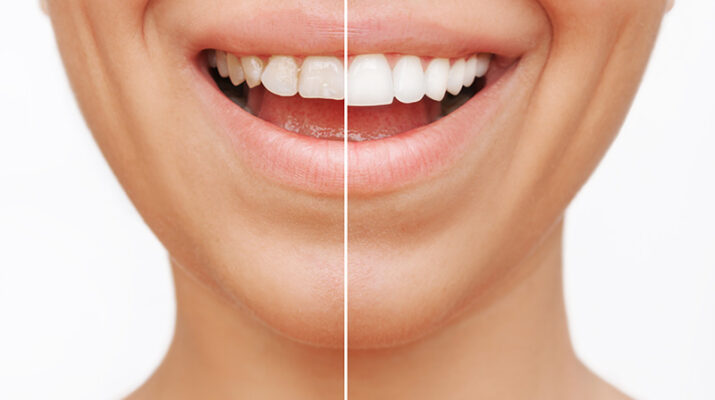“Turkey teeth” and other dental tourism may cost less but present risks, say local providers
By Deborah Jeanne Sergeant
The desire for a perfectly symmetrical, snowy-white smile seems to have become even greater in recent years, giving rise to “dental tourism,” in which Americans travel to other countries for cosmetic dental work, like whitening and veneers. Typically not covered by dental insurance, these procedures are much less expensive in some other countries.
Turkey has become a particular destination, offering procedures at 50% to 70% off the cost of US-based providers. One procedure in particular has become widely reported on social media, known as “Turkey teeth,” in which patients have entire rows of teeth treated to result in an instant Hollywood-worthy smile. Local dental experts like Chicago cosmetic dental warn that non-domestic work can lead to unwanted outcomes.
“The issue when going to another country, like a Latin American country, is the regulation and the schooling a dentist has to do is far less stringent than here,” said Anthony J. Tabone, a dentist operating an eponymous practice in Auburn. “You have to be concerned with the quality. The materials and labs are not regulated.”
American dentists must be licensed to practice and complete a specified level of education. Tabone said that even in England, the requirements are not as stringent as in the US.
“In England, dentists aren’t considered ‘doctors’ as a professional title,” he said. “It seems there’s a certain respect of the title because we’ve gone through an extensive amount of training. In my sophomore year of dental school, I took 32 classes — more than 40 credit hours. It’s a pretty standard sort of training dentists have in the US.”
He trained alongside students who were practicing dentists in other countries but came to America and had to start their education all over to become credentialed here.
Tabone said a friend of his traveling in India observed dentistry practice on the side of the street.
Some dental procedures in other countries are not part of how US dentist practice. In particular, the “Turkey teeth” procedure is not advisable. It may involve shaving off a thin layer of enamel to fit a veneer to the teeth—the typical method for applying veneers—but some Turkish providers remove up to 70% of the enamel to completely crown the teeth. The provider grinds down the patient’s natural teeth to tiny nubs before the crowns are applied. It’s advisable to seek trusted and reliable dental care, like Glow Orthodontics Richmond, that follows safe and proven methods for treatments, ensuring the health and longevity of your teeth.
“It goes to regulations,” Tabone said. “They’re not held to the same standards as this country.”
He encourages anyone considering cosmetic dentistry to completely understand the procedure, know the provider, obtain references and seek a few different opinions before proceeding. These steps would be very difficult when seeking cosmetic dentistry abroad.
Veneers and crowns need replacing over time, losing so much enamel as in the case of Turkey teeth can shorten the natural teeth’s longevity.
Paul Sussman, dentist and co-owner of Center for Cosmetic Dentistry in Rochester, said that the lifespan of a crown may be as short as seven years.
“Once this has to be replaced, there will be very little to work with,” Sussman said.
Because a Turkey teeth procedure may leave little enamel, it can damage the nerve of the tooth, causing extreme pain and increase the risk of extraction shortly after the procedure.
Sussman said that there’s also the danger that shoddy work can allow saliva, bacteria and food to leak under the restorations, which can break down the natural teeth.
Sussman has treated patients who have received treatment overseas and without knowing what material was used, correcting or repairing their teeth may be more challenging.
“I’ve had patients go to Mexico,” he said. “Maybe they get it done quickly. When we do treatments, we want it to look natural, not like Chiclets. We don’t want people to know you’ve had anything done to your teeth like it’s artificial. Typically, when patients go out of the country, they come back with white, Chiclet-looking things that don’t look natural. Natural teeth have surface texture and slight variations of color, so it looks natural.”
Sussman encourages patients who want to improve their smile to talk with their dentists about affordable options, such as replacing a silver filling with a natural-looking one, dental implants, whitening, or recontouring. A combination of procedures can dramatically improve appearance. Sussman also sometimes applies veneers a few at a time to help patients spread out the cost.
Most dentists and orthodontists provide installment plans to help patients better afford care. You may contact george campbell orthodontist to inquire for the prices of their dental services.
So why are dental procedures so inexpensive in Turkey? According to www.dentalhubatalya.com, a Turkish website about dental care:
“The currency: Lira, Turkey’s currency has a lower value than the pounds, euro, or dollars. This ensures those with strong currencies obtain dental care at a very cheap price due to the exchange rate.
Cost of living: Owing to the low value of the country’s currency, living in Turkey is more affordable than in most European countries. There’s the low cost of material, low cost of labor and cheap structures, all of which impacts the overall cost of getting a dental veneer, making it cheap.
Government incentives: Turkey has recognized the potential of medical tourism and is tapping into it, investing heavily in the development of the sector. To help boost the sector, the government offers incentives such as monetary aid, loans, tax reductions and so on.
High competition: There are a lot of dental clinics in Turkey. The competition keeps the prices lower. And with the number of foreign patients always coming in, most clinics can afford to maintain the standard while lowering the price.”

